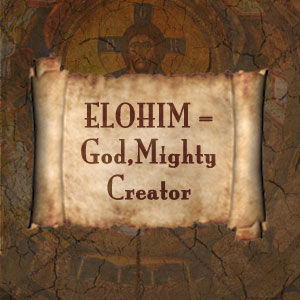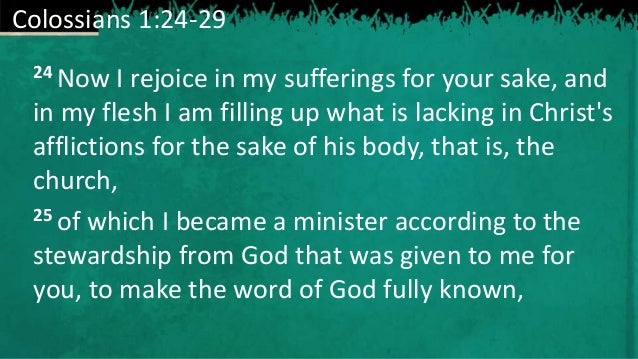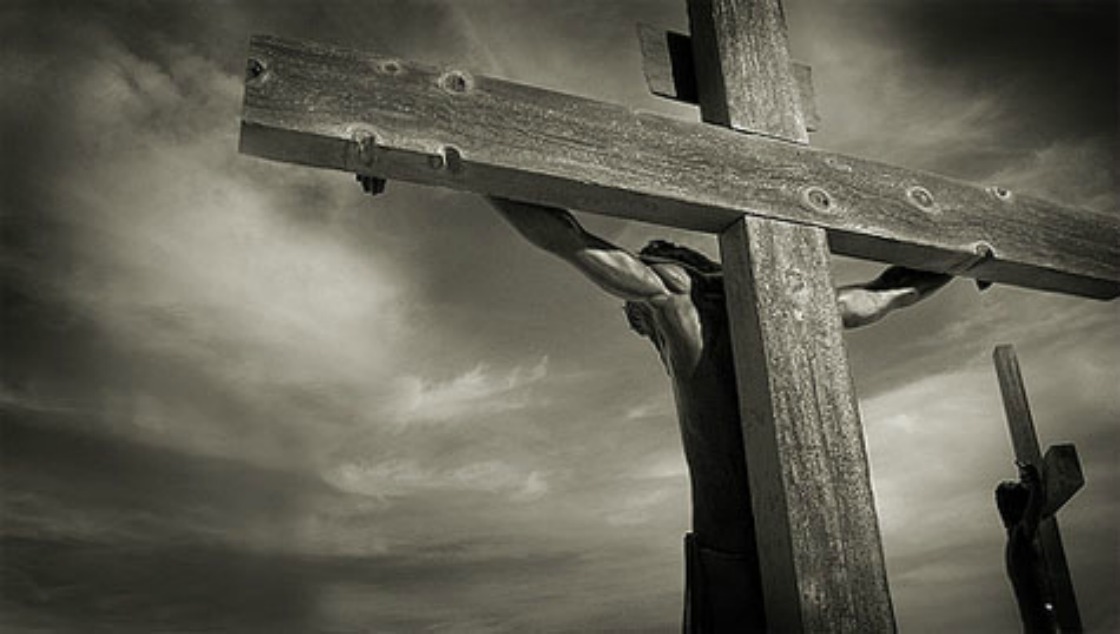Is the United States falling apart? Each night as I rest my head on the pillow I have more
With growing panic, I beseech God: Why aren't Christians leaders (with the exception of the intrepid Franklin Graham) not standing up and vocally, powerfully and courageously
denouncing the wicked crimes the nation is amassing against our Lord? Where is the public outcry among pastors and priests?
Why, oh why, don't our Catholic bishops—the USCCB—stand up and do something? What is wrong with them? They seem to have no courage, no faithfulness to God with all this unending silence—or whispering at a level no one is hearing. It seems to us Catholics out here paying attention that, at the very least, the shepherds have gone to sleep while the sheep are being ravaged.
Based upon the reality of what we are witnessing, it is not undutiful or apostate for Catholic laypeople to ask the question, "Is the Catholic Church really the church Christ started, when it seems the leadership has been on a catastrophic moral collapse for over the few decades?"
Here is where the knowledge of Church history will help us find courage and stay faithful. Therefore let us take a few steps through history. (1)
THE 16TH-CENTURY ENGLISH REFORMATION
In 1534, King Henry VIII issued the Act of Supremacy. This proclamation did the unthinkable; it declared His Majesty the sole "Supreme Head in Earth of the Church of England." While Catholic England was still stunned by such an arrogant grasp of spiritual authority, the king went even further by announcing the Treasons Act. If any citizen failed to publicly swear the king is the head of the church, they would be guilty of treason and would be punished by death.
The British Isles went even further into shock when their Catholic bishops decided that this was one of Henry's passing fancies and would be soon set right. So they all agreed to passively to submit to the King's demand and wait it out. He would die and a good Catholic king or queen would take his place and undo all the damage.
Therefore all the bishops signed the pledge and "pinched the incense" of paganism. All of them but two. The first was an old bishop who died soon after. The second: Bishop of Rochester, John Fisher. He refused to take the oath before God. And he was beheaded. The vast majority of the priests followed the unfaithful bishops. Many of the religious monks and nuns caved. But not all. Ireland held strong and that first year 800 Irish monks were slaughtered for their faithfulness to God.
The British Isles went even further into shock when their Catholic bishops decided that this was one of Henry's passing fancies and would be soon set right. So they all agreed to passively to submit to the King's demand and wait it out. He would die and a good Catholic king or queen would take his place and undo all the damage.
Therefore all the bishops signed the pledge and "pinched the incense" of paganism. All of them but two. The first was an old bishop who died soon after. The second: Bishop of Rochester, John Fisher. He refused to take the oath before God. And he was beheaded. The vast majority of the priests followed the unfaithful bishops. Many of the religious monks and nuns caved. But not all. Ireland held strong and that first year 800 Irish monks were slaughtered for their faithfulness to God.
To add to the tremendous blow, Henry seized Catholic Church property. All, everything: churches, monasteries, land, everything was stolen and given to the British Church. Before his death, King Henry burned or beheaded or disemboweled thousands of Anabaptists, Catholic monks and bishops. There sole crime was that they refused to recognize the king as the head of the church.
A contemporary eye witness reports that Catholics were,
A contemporary eye witness reports that Catholics were,
“hanged until partially conscious. Then their bellies were cut open, their intestines wrenched out and tossed on a fire, and their hearts ripped out by hand. The bodies were beheaded and quartered, and the pieces were posted at various locations throughout England. As the executioner slit open his belly, John Houghton, prior of the London Carthusian monastery, said, "O most holy Jesus, have mercy upon me in this hour."
The great saint, layman and Lord Chancellor, Thomas More, as a shining example to the cowardly church hierarchy, went bravely to his execution. He was beheaded at the Tower of London rather than betray his Lord.
It was simple peasants, the humble monk and nun, and a few lowly priests who were imprisoned, tortured and executed for their faith. England's Catholics were horrified to watch their God appointed leadership fail God and them, yet see the laypeople go to their deaths.
It was simple peasants, the humble monk and nun, and a few lowly priests who were imprisoned, tortured and executed for their faith. England's Catholics were horrified to watch their God appointed leadership fail God and them, yet see the laypeople go to their deaths.
As we travel back through time, this same scenario repeated itself time and time again. It can be discouraging to read the failures of the church's leadership in history. And even the early church was not immune to this.
THE 4RD-CENTURY PERSECUTION
Emperor Diocletian ordered, in AD 303, that all Christian clergymen were to report to his authorities and to publicly sacrifice to Rome's gods. Then, in front of public witnesses, each Catholic bishop and priest must swear allegiance to Rome and her gods, only then could they receive a certificate to prevent accusations of treason which may lead to imprisonment or execution. Fourth-century church historian Eusebius reports with regret that most of the Christian clergy did not hesitate to renounce Christ.
Three years later, the net was cast much wider. The command was issued to the laity. Every man, woman, child and slave in the empire must sacrifice to the gods or die. Entire churches, indeed entire parishes gave in rather than suffer persecution. We have witnesses record for history that they felt like an earthquake had hit when, unannounced, Roman officers would come into their city and demand everyone sacrifice on the spot or be tortured.
One of the great historical tragedies is at this time, the bishops had the original letters and gospels written by the Apostles or their followers: the original manuscripts! And the bishops handed them over to the government official to be burned without the slightest hesitation. At this time, the scriptures were almost lost completely except for a few Christians who hid them and some even went to their own martyrdom protecting them.
Three years later, the net was cast much wider. The command was issued to the laity. Every man, woman, child and slave in the empire must sacrifice to the gods or die. Entire churches, indeed entire parishes gave in rather than suffer persecution. We have witnesses record for history that they felt like an earthquake had hit when, unannounced, Roman officers would come into their city and demand everyone sacrifice on the spot or be tortured.
One of the great historical tragedies is at this time, the bishops had the original letters and gospels written by the Apostles or their followers: the original manuscripts! And the bishops handed them over to the government official to be burned without the slightest hesitation. At this time, the scriptures were almost lost completely except for a few Christians who hid them and some even went to their own martyrdom protecting them.
Those who did remain courageous and stood up to Rome were the regular lay-believer. It is interesting to note how many young maidens make it into the annals of martyrdom. There was a particular grace given to those virgins who loved Christ, and often they were the most brutally tortured.
Why? Why have our christian leaders been so weak through the centuries? It is tempting to just give up on religion when we see the scandal, the cause for the ruination of souls, the catastrophic collapse in courage among those set up as our shepherds. Is the answer as simple as the Protestants claim? For they say God never appointed such men as our shepherds.
But let us refute that with one last scene in history.
But let us refute that with one last scene in history.
THE GARDEN OF GETHSEMANE
The gospels record that the men Christ chose for His closest companions were so weak that at His greatest moment of temptation, when He was literally in such agony of Spirit in the garden of Gethsemane He was sweating blood, that His Apostles could not even remain awake.
Then, only moments later, our precious Savior, our Creator and innocent God, faced a murderous mob alone, betrayed not just by Judas, but by those who claimed to love him. They all scattered. His friends scattered. Those companions who Jesus said that God had given to Him and would one day run the church—were completely faithless.
From the beginning, Christ has chosen His authorities among weak and cowardly men. Why?
Perhaps it all started in another garden long ago, when the first man not only betrayed his God but his wife by his weakness when he accepted the apple. And that same scenario has been playing out generation by generation.
But lest we give up in despair. Let us think of who did not abandon Christ. The one person who refused to betray Christ whom we see remaining steadfast from the moment the Father spoke to her through the archangel and called her, "Hail Mary!" to watching her son die on the cross. This was His mother.
Jesus gained strength from looking into the depth of His mother's eyes as He suckled her, was taught by her and went to His death with her near. Her strength gave Him strength.
And who did He see in His mother's eyes? He saw His church.
For Mary is the icon of the Church and mother of His Bride. Through that beautiful courage of His mother, the church has found the courage to never abandon Christ. Through those centuries of cycle after cycle of His Bride being attacked by the powers of darkness, she has remained faithful through the simply love of the layman.
This is not the end of the bishops' unfaithfulness. Prepare yourself for yet another chapter of bishops being cowardly. Pray for them. Do not fear the collapse and scattering of God's leaders when persecution comes. Do not be scandalized or swept away with discouragement if you see bishops fail.
Only ask one question: Will you be among those laypeople whose holiness will shine brightest during these times? Will your courage and love for Christ remain firm until death? That can only be answered in one way. If you are growing in His unmerited grace and power; if your life is submitted to Him, then you have no reason to fear. His grace will sustain you.
History may record the implosion of God's chosen authorities, but history has always made room for the lowly, humble Christian hero. Let's roll…..
Only ask one question: Will you be among those laypeople whose holiness will shine brightest during these times? Will your courage and love for Christ remain firm until death? That can only be answered in one way. If you are growing in His unmerited grace and power; if your life is submitted to Him, then you have no reason to fear. His grace will sustain you.
History may record the implosion of God's chosen authorities, but history has always made room for the lowly, humble Christian hero. Let's roll…..
_______________________________
(1) MODERN CHURCH LEADERSHIP SCANDALS
It is not fair to include the priest sexual scandal because the majority of bishops were not included in this. While it was indeed a horrific scandal with fruits of tremendous loss of faith in Catholicism—the actual number of clergy involved was slight… less than 3 percent during a few years. We will not highlight how the Catholic bishops failures exacerbated the tensions that led to the Cristero War in Mexico in the 20th century, nor how the French clergy were at the center of fomenting liberty among the people that backfired on themselves in the 18th century French Revolution. But suffice it to say that historically the church hierarchy tends to have poor political instincts in many situations around the globe.
















